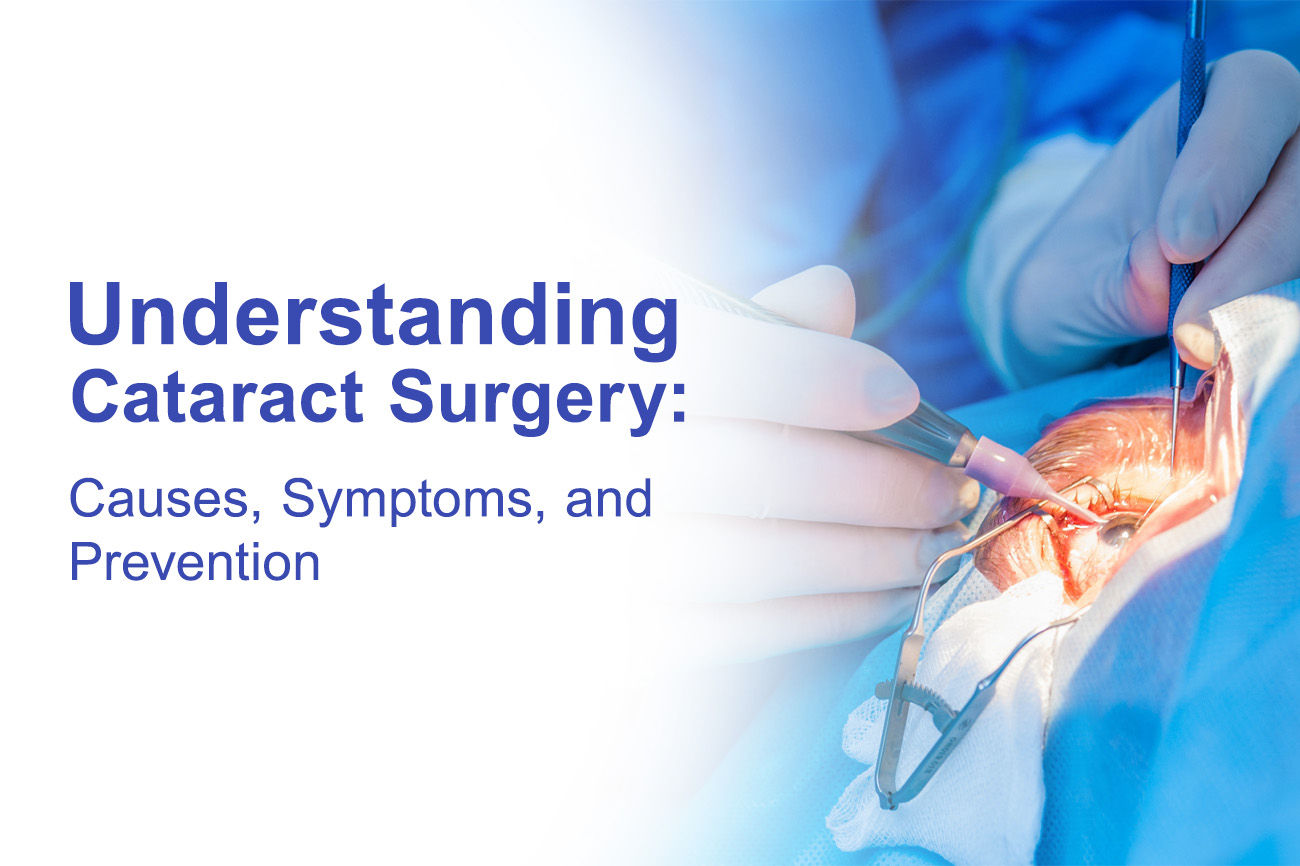Understanding Cataract Surgery: Causes, Symptoms, and Prevention

Cataracts affect millions yearly and are a leading cause of blindness worldwide. In the simplest terms, a cataract is a clouding of the eye's usually clear lens. For people who have been suffering from cataracts, their visibility becomes very similar to that of an average person trying to squint and watch through the fog or frostiness.
As a result, cataract victims might experience hurdles in reading or riding cars in the dark. This creates problems in day-to-day activities, so it is necessary to cure them. Ahead, we will help those looking to understand this condition, from its causes and symptoms to cataract-removal surgery.
What Causes Cataracts?
Cataracts can develop for several reasons. Age is the most common factor. As we age, proteins within the lens of our eyes may aggregate, leading to cloudiness. Additional factors contributing to this condition include:
-
Genetic factors: A family history of cataracts can increase your risk.
-
Medical conditions: Diabetes, for example, can lead to cataract development.
-
Lifestyle factors: Smoking and excessive alcohol intake have been associated with the development of cataracts.
-
Environmental factors: Long-term exposure to UV rays without proper eye protection can precipitate cataracts.
-
Previous eye injury or surgery: Eye injuries can hasten the development of cataracts.
Symptoms of Cataracts
Recognizing the symptoms of cataracts is vital in seeking timely treatment. Common indicators include:
-
Blurred vision: It may seem like you're looking through a foggy window.
-
Light sensitivity: Bright lights might cause discomfort or halos.
-
Color fading or yellowing: Colors appear duller, and contrast diminishes.
-
Difficulty with night vision: Low light situations can become challenging.
-
Frequent prescription changes: Glasses or contact lenses may need to be updated more regularly.
When to Consider Cataract Surgery?
Cataract surgery is recommended when the condition seriously impairs vision and affects daily activities like reading or driving. It's one of the most common and successful procedures performed worldwide.
The surgical procedure involves removing the cataract-affected lens and replacing it with a clear artificial lens called an intraocular lens (IOL). Most cataract surgeries are done on an outpatient basis and require only minimal sedation.
The process is highly successful, with most patients experiencing significant improvements in vision. The benefits of cataract surgery include sharp visual acuity, an improved quality of life, independence, and safety.
Preparing for Cataract Surgery
Before surgery, you'll undergo a series of tests to determine your right lens implant (IOL) type. Your eye doctor will review what you can expect during and after the procedure, including the potential risks and the post-operative care required.
Recovery from Cataract Surgery
Recovery usually spans a few weeks, and it is paramount to adhere closely to the guidance provided by your eye surgeon. This might include using eye drops to prevent infection and inflammation, wearing protective eyewear, and avoiding strenuous activities that could harm your eye while it heals.
Cataract Prevention
While there's no guaranteed way to prevent cataracts, there are actions you can take to lower your risks, such as:
-
Wear sunglasses: It is vital to shield your eyes from harmful UV rays.
-
Eat a balanced diet: Nutrients and antioxidants in fruits and vegetables can affect eye health.
-
Control other health problems: Managing conditions like diabetes can help.
-
Avoid smoking: This reduces your risk not only for cataracts but for many other health issues.
Understanding cataract surgery is an essential step for anyone facing this diagnosis. Understanding the causes, spotting symptoms early, and exploring surgical options are proactive measures to preserve clear vision and a healthy life. Although eye surgery may seem daunting, advancements in cataract treatment enhance patient experience and outcomes.
Remember, periodic eye exams are pivotal for detecting cataracts in their early stages. If you observe any alterations in your vision, do not delay seeking advice from your eye care specialist. With proper care and the correct measures, the impact of cataracts on your life can be minimized, allowing you to see your world in a bright new light.
